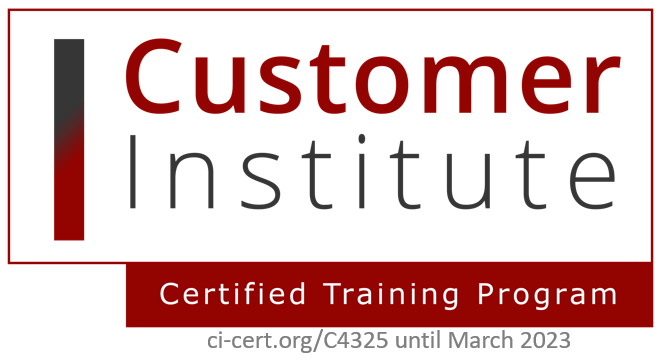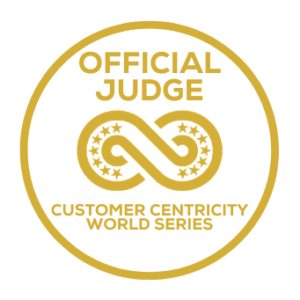“The World needs new lenses to understand growth so that humans and societies can thrive.
Happiness is a human right and a life choice.
Feel, Understand and Act.”
Luis Gallardo, Founder of World Happiness Summit – Wohasu – and World Happiness Foundation
My mission is to raise the awareness of the role of happiness, not only on a personal level, but also as a driver for growth for companies. Companies that focus on creating positive and meaningful customer experiences will spearhead their growth in a sustainable manner.
When I learned last March that there was going to be a World Happiness Summit (WoHaSu) in Miami, I could barely believe my eyes. Seems that the global discussion about the topic is suddenly picking up speed!
During three days top-thought leaders, professionals and experts of all sectors: technology, academic, experiential and wellbeing gathered to raise awareness about the role of happiness in the way we design our lives. It’s a milestone and an indication that a major shift is taking place.
There could not be better news for me as I am a firm believer in the pivotal role that companies have in improving our quality of life. Yet it feels to me that happiness is still considered responsibility of the individual or government, helped by research and psychologists. Time to find other people that, like me, believe for profit organizations can and need to play a key role as well.
I had the most enriching three days talking with several of the speakers about how can we bring more happiness into the world and shift to a Happiness Driven Growth! I’m honoured to have spoken to top change makers such as main Positive Psychology & Happiness Researcher Tal Ben-Shahar, Shawn Achor one of the world’s leading experts on the connection between happiness and success, best-selling author and CBS anchor Michelle Gielan, happiness economists Lord Richard Layard and Jan-Emmanuel De Neve; Bhutan GNH Center Director Saamdu Chetri, and many more.
In this post, I am sharing with you the highlights of this unique and enriching event!
Program
Never before has a gathering of governmental leaders, forward-thinking economists, NGOs, NPOs, and ground-breaking technologists united in this unprecedented format around the data-driven science of happiness.
The agenda had four main areas: academic, experiential, technology and governmental. In each, a specific theme was explored in depth.
For instance the Technology Track was a full day of insightful keynotes and dynamic panel discussions from local, national and international leaders, where the intersection of happiness within an increasingly digitized life was explored.
During the Experiential Track participants listened to experts about the 6 key elements of well-being: purpose, social, financial, community, physical and mindfulness, to shape how we perceive and achieve happiness.
The Academic and Governmental Tracks united high-level representatives from over 40 countries, NGOs and eminent academics from around the world to share advances, challenges and best practices towards increasing the impact of global happiness across specialties, institutions and borders.
WoHaSu Experience
The Summit was hosted in a beautiful location. On arrival I was immediately captured by the whiteness of the building and all the green area surrounding it…there were huge palm trees with hanging hamacas inviting to relax. Once inside the area looked also very pleasant and immediately welcoming with big wooden tree with white and green balloons and big WohaSu.
As soon as I entered a came across a lovely lady sharing with me “The Good card”, a card linked to an app and to a process of doing good and pass on the card.
Next person I came across was…. Shawn Achor!!! One of the person that most inspired my own Tedx Talk with his own Tedx talk and his book “The Happiness Advantage”. I couldn’t resist immediately a selfie, not knowing that I would still see him in the following days and even have the chance for a proper conversation with him later.
After that I entered the main stage and started following many talks either there on the other stages. During breaks. The atmosphere was remarkably friendly and everyone was super approachable. Within no time I met and spoke to Lord Richard Layard, to founder Luis Galliano and to so many other speakers and attendees, and even become part of a “massage train”, getting a shoulder massage directly from Saamdu Chetri, Director of Bhutan GNH Center.
Every detail wa aligned with providing an happy experience, from the hamaca, to the swings, to the relax areas outside with couches and waterfalls to the iphones/iPad chargers provided for free and and having a quote on one side and a beautiful painting of Britto on the other side.
What is Happiness?
Before sharing more details, I guess everyone is asking “what is happiness”? Some of the speakers at the World Happiness Summit expressed the view that happiness is something that we understand, not something that needs to be defined. However, some speakers described the necessity to define happiness. Doug Hadden got all the definitions given nicely summarized in this Storify
The 3 days in Miami have been truly memorable for me. Rather than sharing all the highlights and learning from these days, I have picked below a selection of takeaways, quotes, tweets as well as providing direct links to the 5 minutes interviews I broadcasted live from Miami. In some cases I also listed further details about some of the key speakers as reference for the many people who since I came back have been asking me who are the most active people in the field of Happiness.
A Selection of Keynotes Highlights
HAPPINESS FOUNDATIONS: The Expanded Being.
Lord Richard Layard, Prof. London School of Economics, Economist and co-editor of the World Happiness Report. He is the author of “Happiness: Lessons from a New Science” (2005) – a book which redefined the simplistic economic link between income and happiness – and he is also the co-founder of the Action for Happiness movement.
When wondering in which society one would most want to live in, prof. Lord Layard answer isn’t “the richest society possible” as most economists would say, but is “a society in which people are enjoying their life the most, there is the most happiness and at least the possible misery”. If this is the society we want to live in, then our purpose should be to create such a society. You can see prof. Layard directly in his Tedx talk at Oxford, and read more about the WHY of happiness and the Action for Happiness movement he started here.
Tal Ben-Shahar, PhD in Organizational Behaviour from Harvard University and is the bestselling author of the books Happier, Being Happy, and Choose the Life You Want; co-founder and chief learning officer of The Wholebeing Institute, Potentialife, Maytiv, and Happier.TV, said:
“Just like you can’t look directly into the sun, you don’t want to directly pursue happiness, as there’s a happiness paradox; people who pursue happiness are often more depressed!” The solution? Focus on wholeness, which is Shahar’s definition of happiness. How to attain wholeness? Focus on these categories: spiritual, physical, Intellectual, relational, and emotional, otherwise known as S.P.I.R.E.
Saamdu Chetri, Director of the Gross National Happiness Centre, Bhutan:
Gross National Happiness consists of four pillars: Fair socio-economic development (better education and health), conservation and promotion of a vibrant culture, environmental protection and good governance.
“Happiness science” covers much more than happiness and. And, the concept of happiness has cultural context. Bhutan, for example, has a much deeper definition of the concept based on equitable social development, cultural preservation, conservation of the environment and promotion of good governance.
Saamdu also shared findings from Theory U (founded by Prof Otto Scharmer) which identifies 4 types of listening
TECHNOLOGY & HAPPINESS
Gopi Kallayil, Chief Evangelist Brand Marketing Google: The Internet of the Inner-Net
Data analysed by Google shows that the only common element between the best performing teams is psychological safety. In other words, when there is freedom to create and to fail without fear of being penalised we perform at our best. Based on these findings, Kallayil sustains that “when people do work with deep purpose they feel happier and innovate more”.
For companies this means that employees’ happiness is an important factor employers need to take into account.
I loved the story Gopi shared of an immigrant who didn’t speak the local language but thanks to Google translate managed to join a football team and train with all other kids:
A true example of what I called an Happiness Driven Growth, where technology truly enables us to live better happier lives.
Mo Gawdat , Chief Business Officer for Google [X], Entrepreneur and Author
Mo told us a very touching story of how he lost his son and how it impacted his happiness & mission
In the new generation we have two issues:
1) our ancient theories about happiness have not been updated
2) the new generation doesn’t understand the language of happiness
Hence when he talks about happiness he does it using analogies with music, movies or games. He avoids using branded names like meditation & mindfulness because that dilutes the value of it.
He is trying to make more people happy by using a language that they can understand
He looked at happiness from the engineer point of view, data driven, wanting to understand why.
Mo Gawdat is the author of “Solve for Happy: Engineering Your Path to Joy” (2017). Through his 12-year research on the topic of happiness, he created an algorithm and a repeatable well-engineered model to reach a state of uninterrupted happiness regardless of the circumstances of life. Mo’s happiness model proved highly effective.
Based on this he came to conclusion that happiness is the difference between events and expectations. It is not the events that happen that make us sad but how we think about the events and the constant thinking & re-imagining about what has happened and what to do. Our brain does what we tell it to do, but when it comes to suffering we let it decide! In short: We choose suffering because we are trained to do so.
Another analogy from Mo that I really like is the one between us and a mobile phone. We come out of the factory super happy, then we add apps & problems begin.
Danish Farhan, Founder & CEO of Xische & Co. “Why happiness is the new GDP”
Dubai is using technology as the tool and happiness as the goal.
They are running the biggest happiness experiment ever with hundreds of data points across the city which continuously measure city which continuously measures the happiness of citizens informing the government continuously so that actions can be taken promptly.
I found fascinating how the greatest initiatives on happiness are coming from countries so far away from Western society and so different from each other like Bhutan and United Arab Emirates
Also,I had a great conversation with Danish too and I was pleased to see how much of my Happiness Driven Growth model resonated with him.
Robert Wolcott, Clinical Professor of Innovation of Kellogg School of Management at Northwestern University – Reflections on the Future of Happiness:
In economic history we have always dealt with scarcity (lack of resources) & opacity (lack of capability to see through things). We are now moving to abundance & hyper-transparency (we will be able to see through things) and this is impacting how customers make their purchase decisions and drive business growth.
LEADERSHIP: Building Our Higher Purpose
Shawn Achor, Leading Happiness Researcher, Author, Positive Psychologist.
Shawn shared how leaders can increase their employees’ happiness and meaning, raise their companies’ success rates and profitability, and create positive transformations that ripple into more successful cultures. He defines happiness in the same fashion as the Greek: “the joy you feel moving towards your potential”.
Unhappiness is the fuel of change. The opposite of happiness is not unhappiness but apathy, when you believe that you can’t change your behaviour”.
Happiness is not the same of engagement. People can be engaged with Titanic, but that doesn’t make them happy.
We shouldn’t sugar coat reality. We need positive realism. Happiness isn’t always easy and depression is more diffused that we want to admit. Like Brenè Brown (also one of my favourite and most read authors) says: “Happiness is the bravest thing because it takes courage to be happy.”
But how do you restart the process when you feel happiness is NOT a choice? You need mind set, positive attitude and behavioural change. Together.
Small positive change really helps. That’s why he invited us to write a 2 minute email/message to a different person every day praising them for something they did and see how much more happiness that brings to us and to the people around us.
Alexander Kjerulf, Chief Happiness Officer at Woohoo Inc.
I loved how Alexander started his talk pointing out how much damage was caused by Friedman’s 1970 article on Forbes about pursuing shareholders value. I couldn’t agree more and that is exactly why I’m working on a Happiness Driven Growth model instead.
Alexander shared plenty of examples from companies that are working to make customers and employees happy and that is paying off. My favorite example was the one of Middelfart bank, which after a major liquidity crisis, decided to pay back customer funds even if they weren’t obliged to do so and how that resulted not only in happier customers which then stayed loyal, but also in very proud employees.
Sonja Lyubomirsky, Author and Professor of Psychology at UC, Riverside
She has carried out a large number of studies on the benefits of happiness and has found out that happiness is equally important in every country. Even in poor countries what parents wish most for their children is to be happy!
UNLOCKING HAPPINESS AT WORK
Panel: Shawn Achor, Jennifer Moss, Mark Williamson, Eduardo Masse, Jan-Emmanuel De Neve & Nic Marks
Great exercise on stage by Mark Williamson asking us all to remember a moment we felt we achieved our best at work & then asking a raise of hands if it was when we were paid the most, when communication from the top was clear, when company vision and strategy resonated with us, when we were working we people we like and trusted, when we felt a great sense of purpose and meaning for what we were doing, with the hands raised increasing these questions were asked. According to Jan-Emmanuel de Neve the yearly world happiness study shows exactly the same results, which will be shared in the world happiness report for 2017.
BROADCASTING HAPPINESS: How We Perceive the World
Michelle Gielan, Positive Psychology and Communication Expert, and Former CBS News Anchor.
Gielan has also been a big inspiration for my Tedx talk as I totally believe in the ripple effect we can each create by broadcasting positivity instead of negativity.
She delved into the power of positive communication and how it not only improves relationships, but also increases the feeling of happiness to those around you. “We have a choice in every story. If we focus on the hope and resilience that even a sad story can bring, then we can broadcast positivity and solutions.”
We are all broadcaster and the news we choose to broadcast can either promote positivity or not. What we say changes everyone around us? What is the material of our broadcast? What’s the ripple effect we generate?
The news today tell stories focusing on problems and not giving enough solutions. If we focus only on problems, our brain will start to think that we only have problems and that everything is out of our control.
Instead we have a choice in every story. If we focus on the hope and resilience that even a bad story can carry, than we can broadcast that positive perspective.
THE POWER OF WE: Social Impact & Being Present
Martin Howard, Executive Vice President of HeartMath Institute.
Martin shared how the heart and happiness have been linked for thousands of years. New science and experience have advanced technology confirming that leading a life with the qualities of the heart is a key to increased happiness, better health, and more fulfillment.
He showed a photo of a Syrian girl in a refugee camp in Lebanon that could still feel at peace having learned how to use Heart Intelligence.
We are born with this intelligence but over the years we learn to live from the neck up. However, even if involuntarily, we broadcast our emotions! Our hearth rhythms change based on what we feel.
He then demonstrated live how a volunteer’s heart rhythm changes based on her thoughts, being the calmest when asking her to make appreciation thoughts.
“There is no way to happiness. Happiness is the way.” ~ Luis Gallardo, WoHaSu Founder
“I hope that at the end of my life governments and business put well-being as top purpose” ~ Jan-Emmanuel De Neve, Associate Professor of Economics and Strategy at Saïd Business School, Oxford.
“Everyone is like a boat. When is full it overflows. When we are full of good we overflow goodness.” ~ Saamdu Chetri, Director of the Gross National Happiness Centre, Bhutan.
“Happiness is not only a personal choice for me, it is a significant factor in redefining prosperity and well being on a global level.” ~ Karen Guggenheim, WoHaSu Founder & Social Entrepreneur
“The most important contributors to our happiness are good human relationships & inner mental health” ~ Lord Richard Layard, Co-editor of the World Happiness Report, Emeritus Professor of Economics at the London School of Economics.
“If you can’t run a business that can make a positive impact, then you shouldn’t be in business.” ~ Alexander Kjerulf, Founder & Chief Happiness Officer at Woohoo Inc.
“Every business should have a KPI in employee happiness” ~ Nic Marks, Policy Adviser, Statistician, Author & Fellow of New Economics Foundation.
“Three C’s that kill our happiness Competition, Comparison, Complaining”. ~ Saamdu Chetri, Director of the Gross National Happiness Centre, Bhutan.
“Formula for happiness: smile, serve & meditate. Meditation brings inner strength, service brings merit & smiling keeps you sane”. Sri Sri Ravi Shankar, Spiritual Leader, Peacemaker & Founder of Art of Living Foundation.
Interview with Saamdu Chetri, Director of the Gross National Happiness Centre, Bhutan
Covering how Bhutan measures Gross National Happiness, how Bhutan’s king wished the best for his people, what is happiness, why WohaSu is such an important milestone and what we can achieve with the World Happiness Summit.
Interview with Jayme Illien, Founder United Nations International Day of Happiness
Covering how International Day of Happiness was founded, why happiness matters and about what we can achieve with the World Happiness Summit.
Interview with Luis Gallardo, Founder of the World Happiness Summit
Covering Luis’s vision, the need for new lenses & measurement framework, why he founded WoHaSu and what he aims to achieve with it.
Interview with Jennifer Moss, Co-founder of Plasticity & WoHaSu strategic partner.
About her vision, why and how we can measure happiness and what we can achieve with WoHaSu
Howard Martin, HeartMath wohasu explaining how this Syrian girl in a refugee camp in Lebanon can… https://t.co/j5fuLRo7ls
— Wow Now, CCXP (@wownowexp) March 19, 2017
"Happiness is the joy you feel moving towards your potential" @shawnachor @WOHASU #WOHASU pic.twitter.com/mNJAzMHCAR
— Wow Now, CCXP (@wownowexp) March 18, 2017
Highlight of day 2 wohasu listening, talking & taking a photo wh most amazing Happiness experts… https://t.co/JpmPX1WnD6
— Wow Now, CCXP (@wownowexp) March 19, 2017
We broadcast our emotions! Our hearth rhythms change based on what we feel. Howard Martin, HeartMath @WOHASU #WOHASU pic.twitter.com/S05AHf9M0d
— Wow Now, CCXP (@wownowexp) March 19, 2017
#wohasu @alexkjerulf example of IKEA lowering umbrellas price on rainy days because their objective is to create better every day life pic.twitter.com/jpLQLTfy2c
— Wow Now, CCXP (@wownowexp) March 18, 2017
HE Dr. @Aisha_BinBishr discusses the role of cities in people's happiness at the 'Public Policy and the Common Good' panel at #WOHASU pic.twitter.com/ptHy2uOn2B
— Smart Dubai (@smartdubai) March 19, 2017
Success mindset & 3 tips to stay positive & broadcast happiness @MichelleGielan @WOHASU #WOHASU pic.twitter.com/AwyBB8p7iB
— Wow Now, CCXP (@wownowexp) March 18, 2017
Martin, HeartMath @WOHASU demostrating live how volunteer's hearth rhythm changes based on her thoughts Appreciation is key #WOHASU #amazing pic.twitter.com/RKwGGyPHWG
— Wow Now, CCXP (@wownowexp) March 19, 2017
#wohasu Having the huge honor share my #happinessdrivengrowth model wh Prof. Lord Layard #happy… https://t.co/0SSMx407oK
— Wow Now, CCXP (@wownowexp) March 17, 2017
Magics of #WOHASU The moment I got in a massage train having the honor of getting a massage from… https://t.co/cCR4AQ16Sr
— Wow Now, CCXP (@wownowexp) March 17, 2017
A huge thanks to Luis Gallardo for founding WOHASU and get the Happiness Movement started!
See you at WoHaSu 2018!
Happiness Driven Growth for Companies
When companies focus on improving Customer Experience, they achieve higher revenue, loyalty, word of mouth, and even lower costs, ultimately driving profits & business growth. By making the interactions between companies and people better we make both sides happier.
This is possible through Happiness Driven Growth, a revolutionary business model that companies can and should pursue, and a concept that I have been championing for quite some time now. I invite you to watch my TEDx talk given at TedxTorvergataU 2016 where I elaborate on why companies should have a growth model driven by happiness, instead of one driven by loyalty and profit.




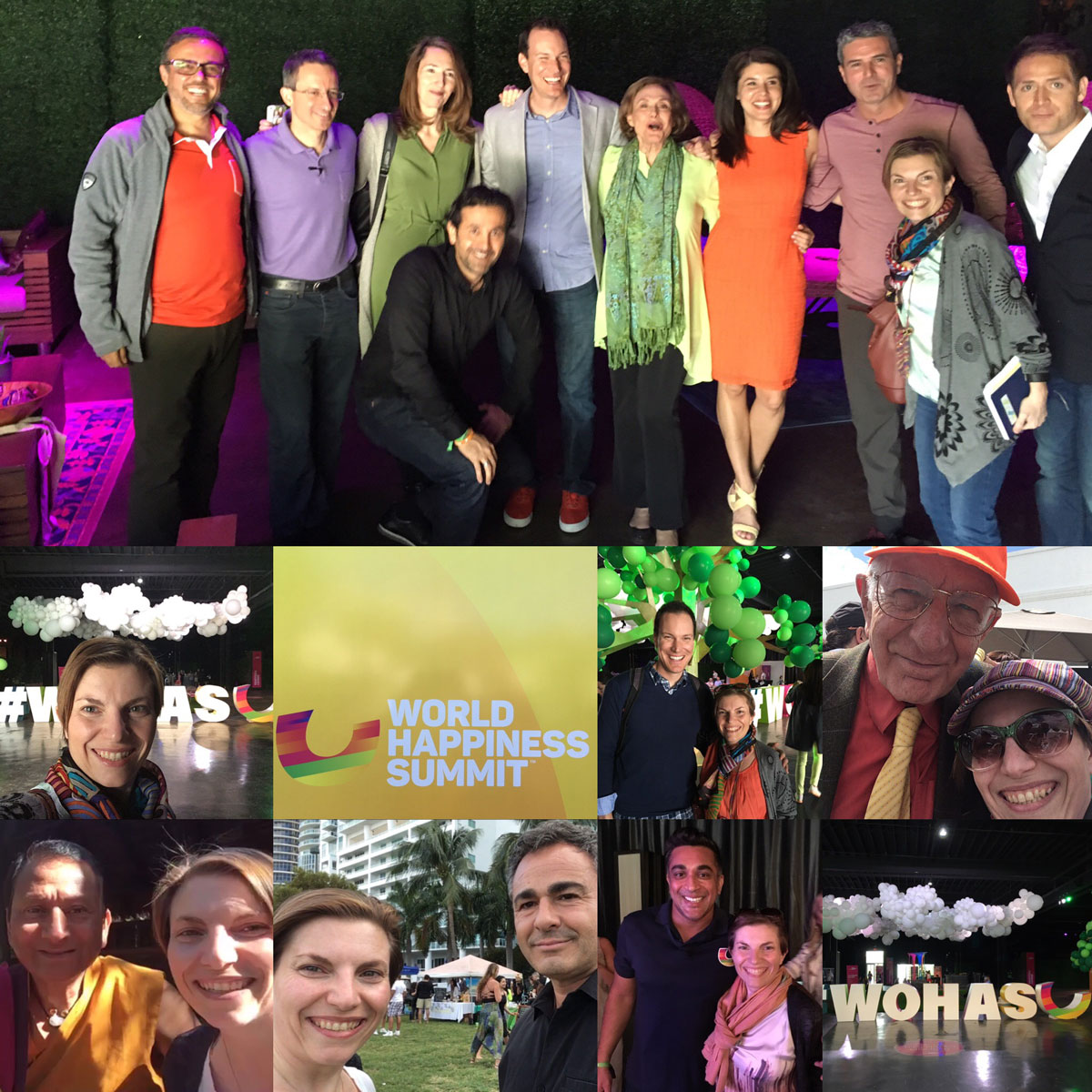
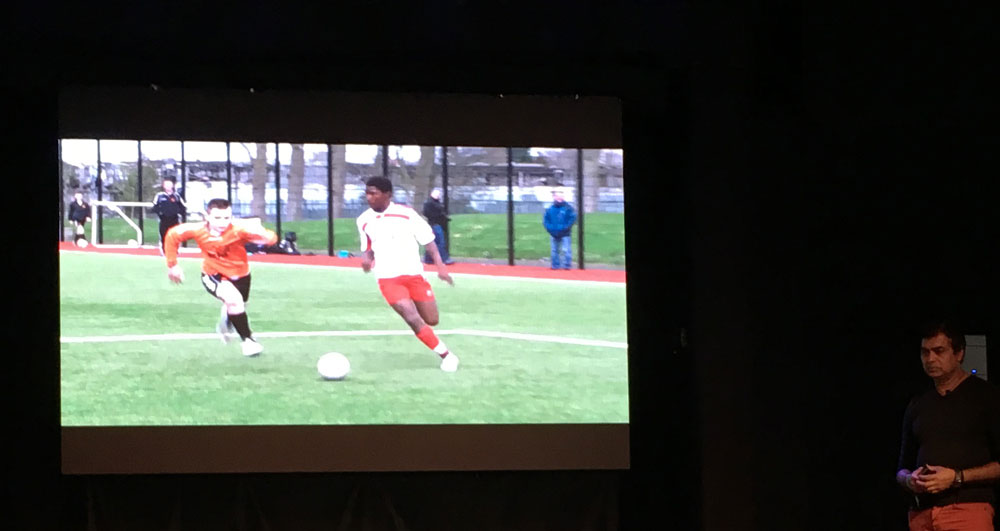


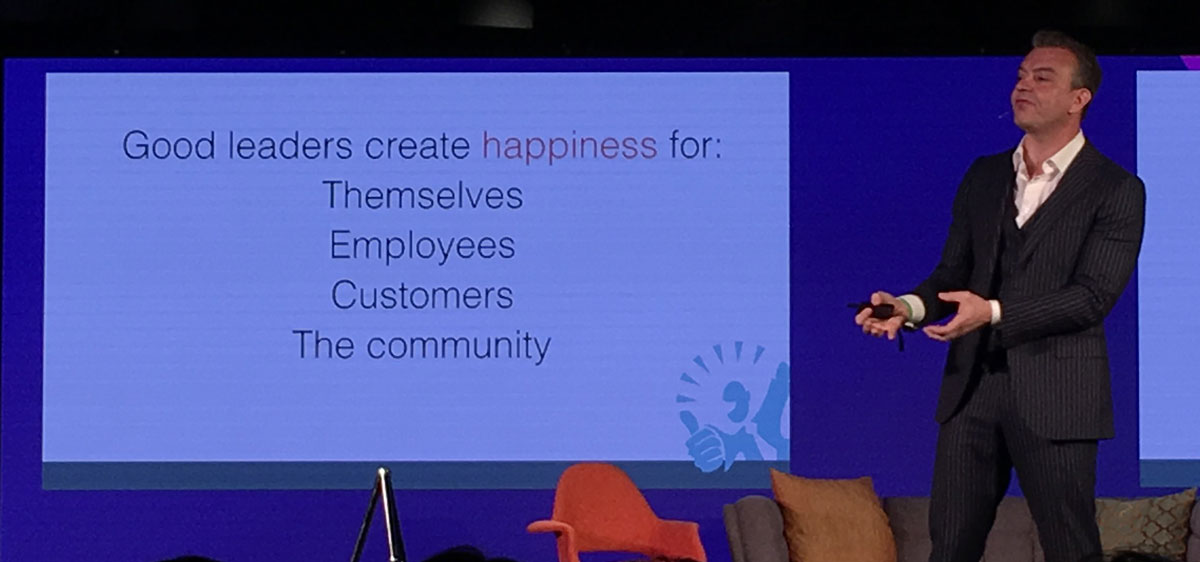
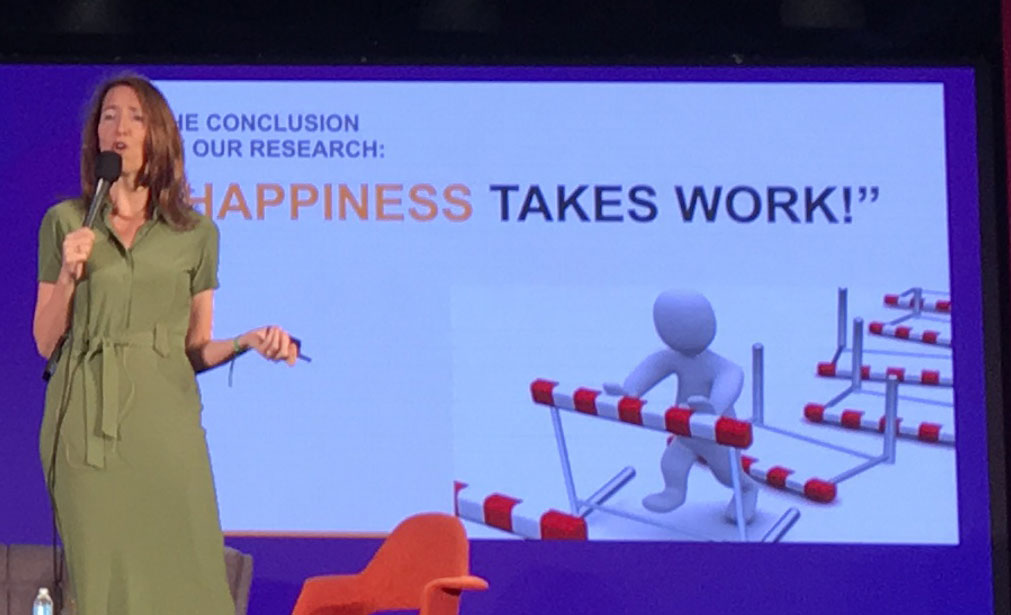
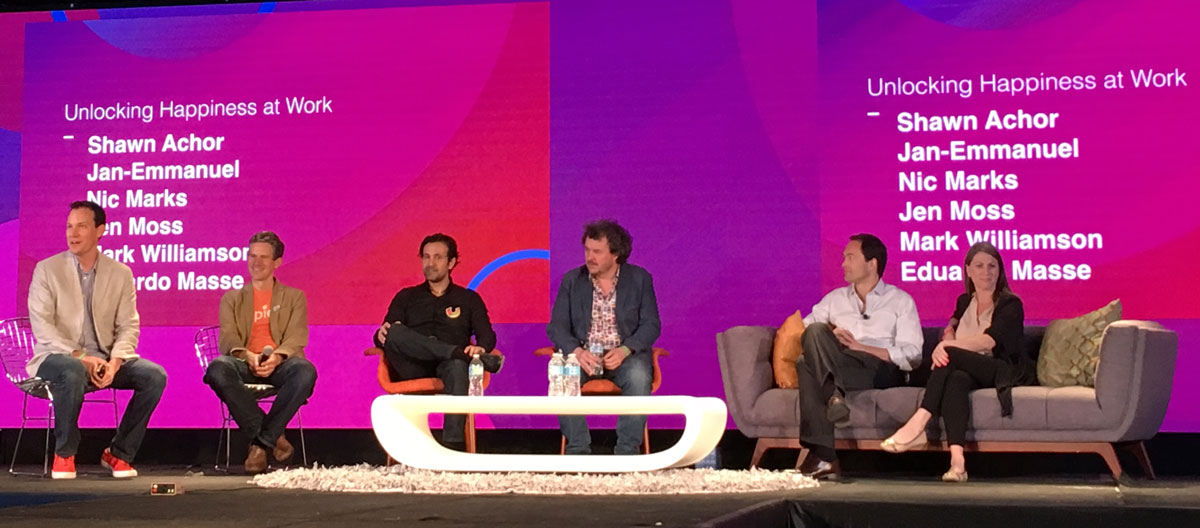


 A (little Italian) sunshine of energy, enthusiasm, and passion, with a mission to bring more happiness in the world one interaction at the time, the business world being my chosen playground!
I inspire and empower conscious leaders to nurture their happiness (moving from depleting to enriching emotions) and to move from depleting to enriching experiences, choosing, designing, and delivering WOW life-enriching interactions that contribute to everyone’s HAPPINESS, so they can achieve business and personal prosperity, making happiness their competitive advantage
A (little Italian) sunshine of energy, enthusiasm, and passion, with a mission to bring more happiness in the world one interaction at the time, the business world being my chosen playground!
I inspire and empower conscious leaders to nurture their happiness (moving from depleting to enriching emotions) and to move from depleting to enriching experiences, choosing, designing, and delivering WOW life-enriching interactions that contribute to everyone’s HAPPINESS, so they can achieve business and personal prosperity, making happiness their competitive advantage 